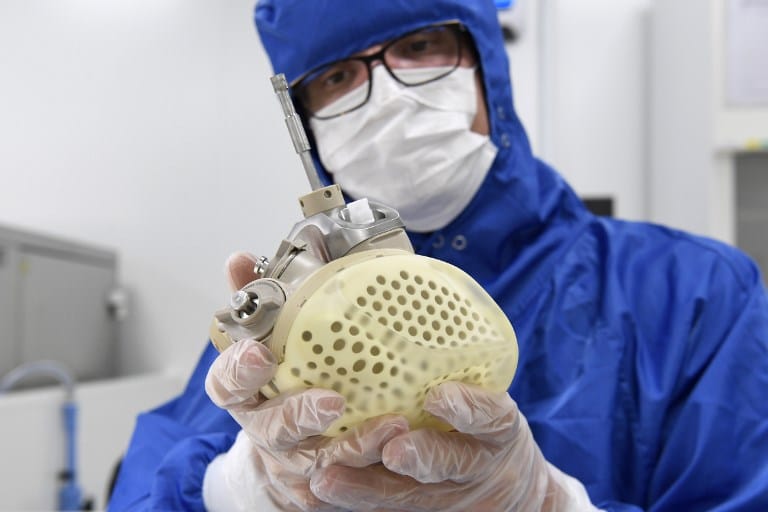Carmat’s artificial heart, a veritable technological and medical breakthrough designed by Dr. Alain Carpentier, has been approved to go from prototype to production. In late December 2020, the French company received CE marking authorizing sale of its cardiac bio-prosthesis within the European Union – rewarding 12 years of development, 30 years of research, and hundreds of millions of euros invested.
European regulatory approval guarantees that the product meets “essential requirements,” such as the fact that use of the product will not compromise patients’ health or clinical condition. Expected to sell for €150,000 each, marketing should start in Germany by the third quarter of 2021.
A real revolution for people with heart failure, this artificial heart, which represents an alternative to a transplant, could concern nearly 100,000 patients a year in Europe and the U.S.A. Results of the clinical trial showed that 70% of the 15 patients who received a Carmat bio-prosthesis reached the six-month post-implant survival mark. The artificial heart contains two chambers, each of which is divided by a membrane into a blood compartment and a liquid compartment. Percutaneous transmission powers the artificial heart, as well as gathering information about how the device is performing.
Having gone public ten years ago, Carmat hopes to operate in the U.S.A. soon, too, and is eagerly awaiting the green light from the FDA.



